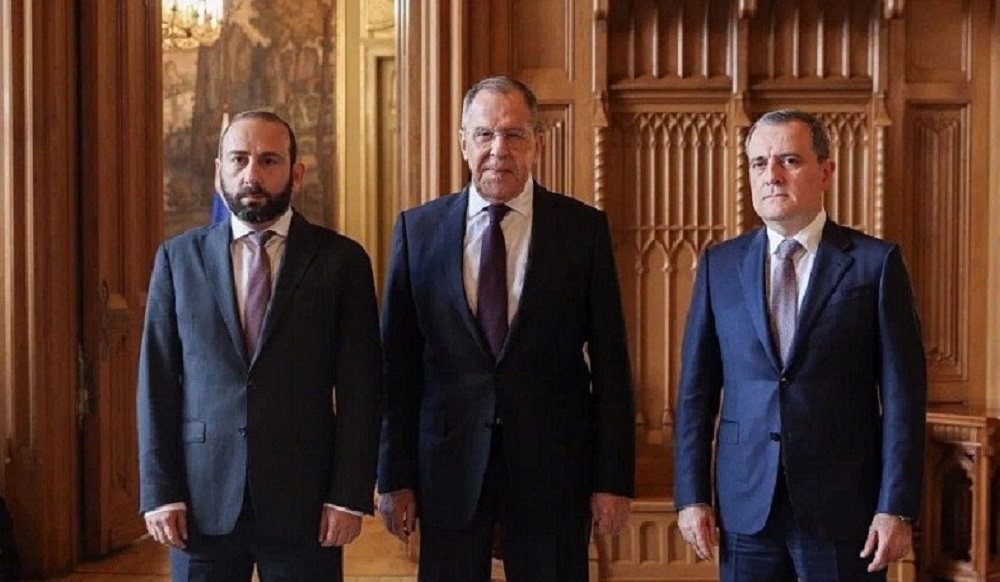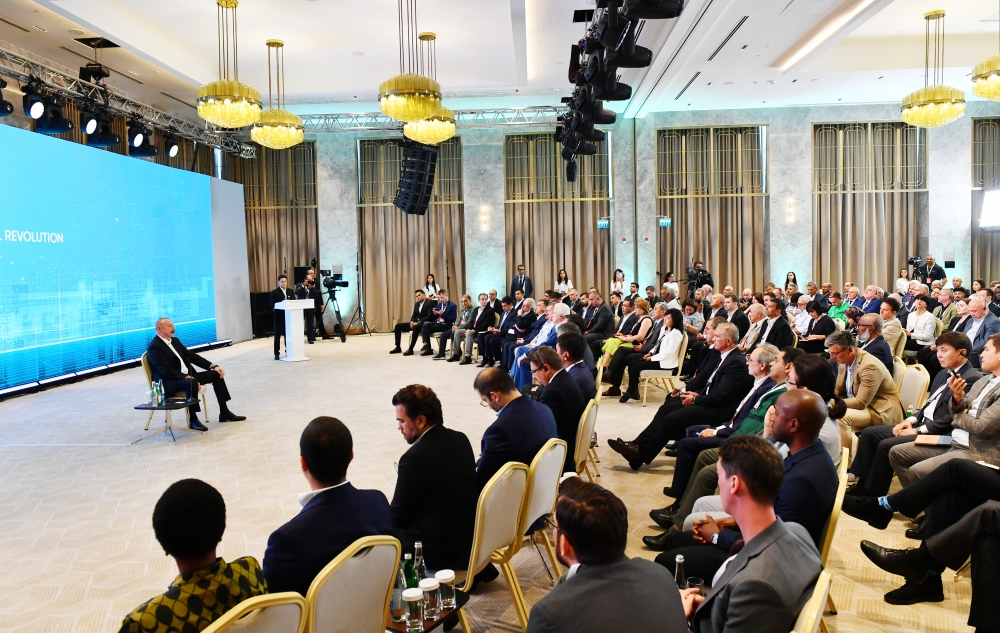What do the mediators say at the talks between Azerbaijan and Armenia? Comparative analysis from Baku
Comparative analysis of intermediary statements
“Everything that we see on the pictures of the screens, the statements of politicians, the tweets of the ambassadors – this is all, of course, interesting, but the main thing is the negotiation tracks and the texts of the statements in Brussels and Moscow, where the leaders and foreign ministers of the countries participated,” political observer Farhad Mammadov says.
The expert analyzed points by point the statements made by the main mediators at the talks between Azerbaijan and Armenia, Russian Foreign Minister Sergei Lavrov and President of the European Council Charles Michel.
- Armenia sends humanitarian cargo to NK, Azerbaijan calls it a provocation
- “You were, like, our republic.” What do Russians who arrived from Sochi to Batumi by cruise ship say?
- US closely monitoring arrest of Azerbaijani politician
“So what do we have on topic:
Sovereignty and territorial integrity
Charles Michel:
⁃ The leaders of Armenia and Azerbaijan once again fully reaffirmed their respect for the territorial integrity and sovereignty of the other country. Based on the fact that the territory of Armenia is 29,800 km2, and the territory of Azerbaijan is 86,600 km2.
Sergei Lavrov:
⁃ The most sensitive of them was and remains the problem of guaranteeing the rights and security of the Armenians of Nagorno-Karabakh in the context of ensuring the territorial integrity of Azerbaijan in full accordance with the 1991 Declaration signed by the leaders of the former Soviet republics in Alma-Ata. Its effectiveness has been confirmed today by both the Azerbaijani and Armenian leadership. In accordance with this, work on a peace treaty is being built.
Here Moscow is late, the EU has a more detailed approach
Border delimitation
Charles Michel:
⁃ Both leaders reaffirmed their unconditional commitment to the 1991 Almaty Declaration as the political basis for border delimitation. I welcomed the meeting of the two border commissions.
Sergei Lavrov:
⁃ We paid special attention to the issues of delimitation, which are closely related to the entire set of problems under discussion, and the issues of the early conclusion of a peace treaty between Baku and Yerevan.
Here the EU has the mark of 1991 and the emphasis on the bilateral format, while Russia has the context of a peace treaty. And there is no reference to the maps of 1975, which Armenia insisted on.
Unblock transport
Charles Michel:
⁃ We have discussed the terms of future transport agreements that will respect the principles of sovereignty, jurisdiction and reciprocity. The construction of the railway connection must be undertaken immediately. The EU would be ready to make a financial contribution.
Sergei Lavrov:
⁃ The closest result at this stage is the achievement of an agreement in a trilateral working group headed by three vice-premiers who are engaged in agreeing on specific issues of unblocking transport communications in the region. In this context, prospects for the implementation of promising projects in the transport sector will also open up.
The most interesting thing is that the EU “immediately” has funding, sovereignty, while Lavrov has an emphasis on the trilateral format, that is, the functionality of Russia on the territory of Armenia.
Humanitarian supplies
Charles Michel:
⁃ The current state of affairs is clearly unsustainable. I stressed the need to open the Lachin road. I also noted Azerbaijan’s readiness to deliver humanitarian aid through Aghdam. I consider both options important and encourage humanitarian deliveries from both sides to ensure that the needs of the population are met. I also welcomed the ICRC’s resumption of medical evacuations.
Sergei Lavrov:
⁃ We outlined to our interlocutors the assessments of the Russian side, taking into account the reports made by the Russian peacekeepers in Nagorno-Karabakh, on the steps that it is highly desirable to take promptly, without delay in the interests of providing the population of Karabakh with food, medicine, basic necessities, ensuring uninterrupted electricity and gas supply. This is in the interests of ordinary people, Armenians, residents of the region.
The EU mentions both routes, separately opening the Lachin road specifically, Lavrov does not mention the Lachin road. Both do not have the resource provision imperative through Armenia.
Rights and security
Charles Michel:
⁃ Local people need reassurance, first of all regarding their rights and security. In this context, I expressed the EU’s encouragement for a direct dialogue between Baku and representatives of the Armenians living in the former Nagorno-Karabakh Autonomous Region. This dialogue should provide much-needed trust for all involved.
Sergei Lavrov:
⁃ The most sensitive of them was and remains the problem of guaranteeing the rights and security of the Armenians of Nagorno-Karabakh in the context of ensuring the territorial integrity of Azerbaijan in full accordance with the 1991 Declaration signed by the leaders of the former Soviet republics in Alma-Ata. Its effectiveness has been confirmed today by both the Azerbaijani and Armenian leadership. In accordance with this, work on a peace treaty is being built. The Armenian side understands the need to convince the Armenians of Nagorno-Karabakh to meet as soon as possible with Azerbaijani representatives to agree on the rights arising from the relevant legislation and from international obligations (in this case, Azerbaijan), including numerous conventions on ensuring the rights of national minorities.
⁃ The Azerbaijani side is ready to provide the same guarantees on a reciprocal basis with respect to persons living on its territory. Armenians are ready to do the same with respect to the application of all conventions to citizens residing in the Republic of Armenia.
Both statements do not (!) require the international format of the dialogue between Baku and the Armenians of Karabakh. Lavrov has detailed rights and security within the legal field of Azerbaijan.
Detainees
Charles Michel:
⁃ We also discussed the issue of detainees. The leaders reaffirmed their commitment to the gentleman’s understanding that the release of soldiers who inadvertently switch sides will be facilitated.
Sergei Lavrov did not comment on this.
No comments…
Thus, the negotiation tracks, in principle, meet the expectations of Azerbaijan and create a favorable basis for progress. And the provocation with trucks is just the reaction of the Armenian leadership to the failure of their negotiating positions,” Mammadov concluded.




















